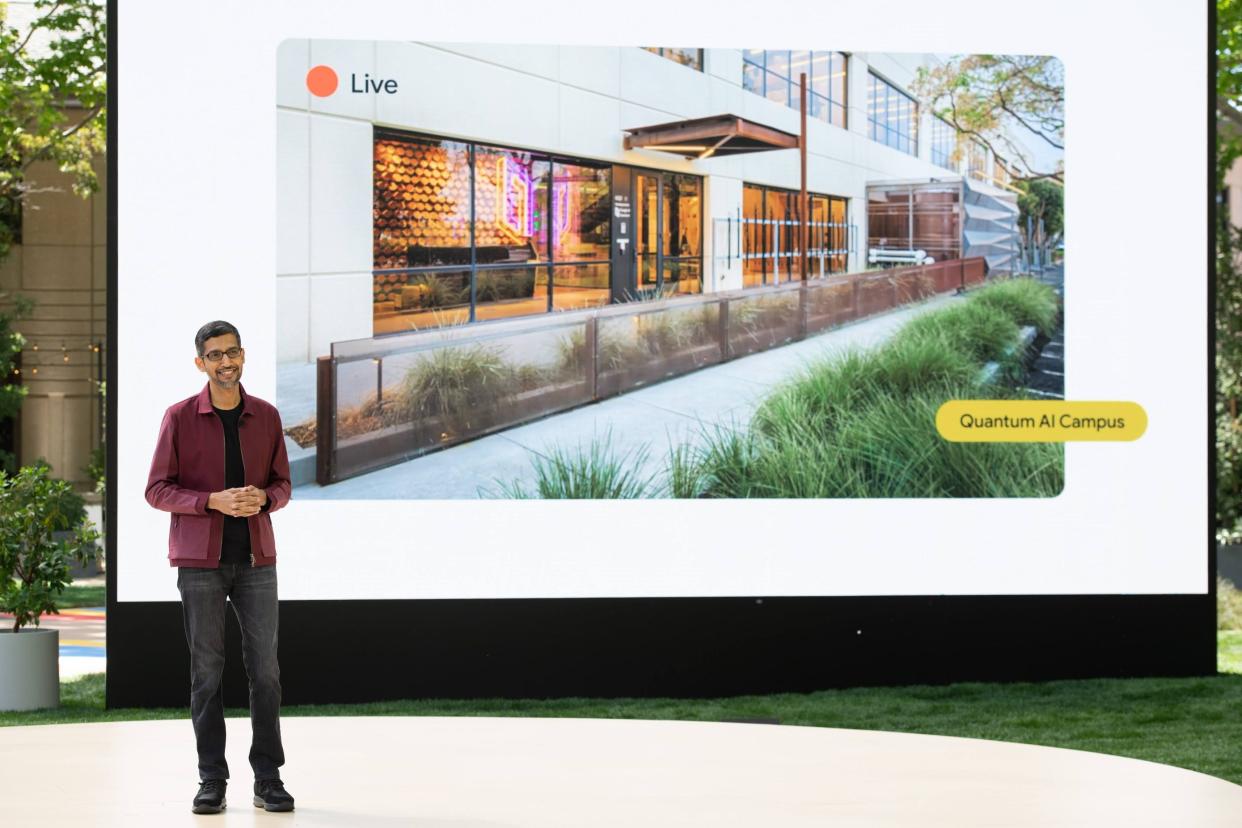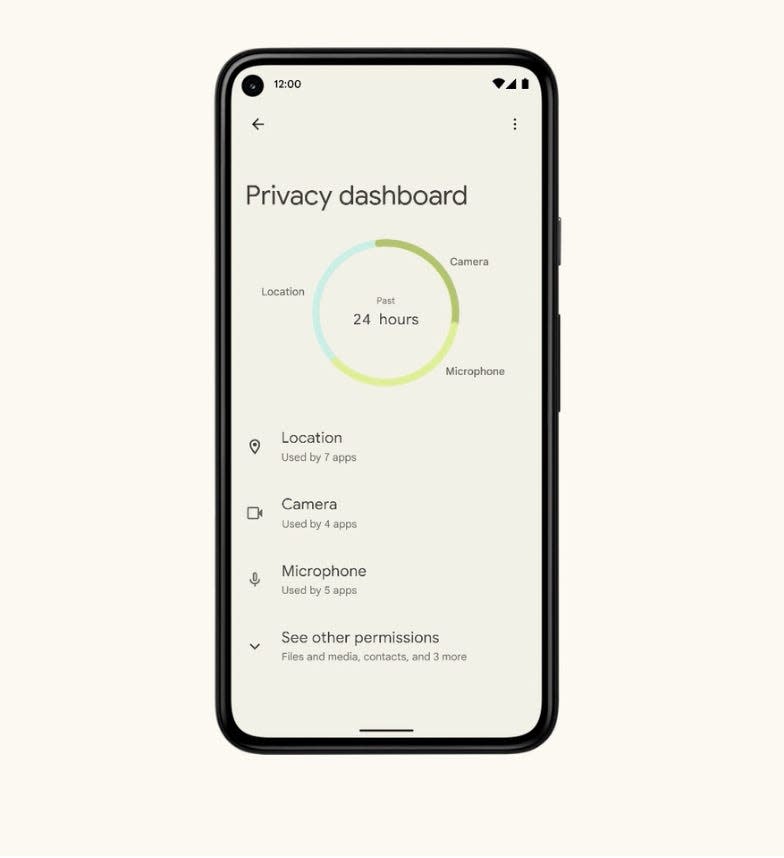Google touts 'privacy by design' at I/O conference, but privacy from whom?

- Oops!Something went wrong.Please try again later.
Parts of Google’s I/O developer conference Tuesday could have been downloaded from an Apple event. Speakers touted such privacy features as on-device processing of sensitive data, browser blocking of web tracking, and alerts of smartphone apps using the camera or microphone.
"We strictly uphold responsible data practices so every product we build is private by design,” said Google CEO Sundar Pichai in the opening keynote. "And we create easy-to-use privacy and security settings, so you are in control."
But where Apple’s business is selling hardware and services, Google makes most of its money from online advertising – a field that’s traditionally involved tracking people. So at this year’s online-only I/O, Google had a tricky balance to maintain in its messaging.
“We are safeguarding users' privacy, but we are still driving value to advertisers,” translated analyst Carolina Milanesi, president and principal analyst of Creative Strategies.
Internet Explorer R.I.P.: Microsoft to say goodbye to IE, retiring its Internet Explorer web browser on Windows 10
Watch: YouTube star Mark Rober upgrades his popular backyard squirrel maze

The privacy changes look most striking in Android 12, a revision of Google’s mobile operating system due later this year. It will bring a “Privacy Dashboard” that itemizes apps’ appetites for data over time, Google’s included.
An onscreen warning – like in Apple’s iOS 14 – will highlight when any app uses the camera or microphone, while the Quick Settings menu that’s a swipe away from any screen will include kill-switch controls to disable those components. And you’ll be able to share only your approximate location with an app instead of precise coordinates.
(As usual in these conversations, the fact that wireless carriers also track your location and store it for far longer went unmentioned.)
Google, however, did not announce an equivalent of the Apple App Tracking Transparency control that lets iOS users stop apps from tracking their use of other apps.
Google further emphasized how much it now relies on “federated learning” – having a device process data instead of uploading it to the cloud. A new Private Compute Core in Android will wall off such sensitive operations as live captioning of audio.
Google’s privacy pitch was less clear on the web, where its Chrome browser has trailed such competitors as Apple’s Safari, Microsoft’s Edge and Mozilla Firefox that already block the “cross-site” tracking that helps companies aim most online ads.
At 2019’s I/O, Google sketched out ambitions to add comparable tools. Two years later, Google has clarified that it will end its own cross-site tracking and block that of others but is still defining “Privacy Sandbox” features to allow sites more distanced assessments of their audiences and ads.
Having Google create a replacement regime in its own browser (often by having a copy of Chrome do its own on-device tracking before uploading anonymized data) might only strengthen Google’s dominant role in ads that’s already the subject of multiple state investigations.
At I/O, Google executives touted more visible privacy controls coming to the web apps you can use in any browser. For instance, its search will add a shortcut to delete the last 15 minutes of your queries. Pichai said Google has made automatic deletion of search and location history after 18 months the default for all new accounts.
But new online shopping tools unveiled at I/O could make Google even more central to your spending. For example, Chrome will monitor shopping carts you’ve left open on sites – and offer optional hints about frequent-customer discounts.
Milanesi’s prediction: Given a chance to save money instead of airy incentives like “personalized content,” customers will accept.
“When it comes to privacy, as long as it's transparent to the user so I'm in control and I know what's going on and I'm clear with my return, then I think most consumers would be happy with that,” she said. “I think the problem starts with, I don't know what you're doing, and I don't see any value with that.”
Rob Pegoraro is a tech writer based out of Washington, D.C. To submit a tech question, email Rob at rob@robpegoraro.com. Follow him on Twitter at @robpegoraro.
The views and opinions expressed in this column are the author’s and do not necessarily reflect those of USA TODAY.
This article originally appeared on USA TODAY: Google I/O 2021: Privacy upgrades coming to Android, Chrome browser

